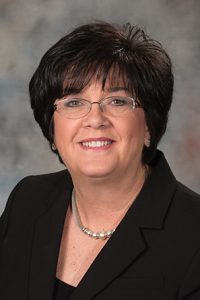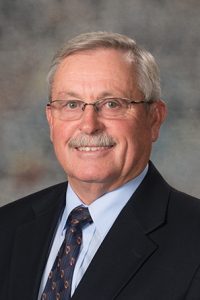Voting machine, ballot counting bills considered
The Nebraska Secretary of State would be required to inspect all vote counting machines used in the state to ensure that they cannot be accessed remotely under a bill heard March 2 by the Government, Military and Veterans Affairs Committee.

LB1121, introduced by Sen. Joni Albrecht of Thurston, would require the Nebraska secretary of state’s office to carry out the inspection and prohibit contracting with a third-party. The bill also would require a representative of the office to be present whenever a ballot counting machine is being serviced.
Albrecht said the bill would send a message to Nebraska voters that their votes matter.
“We owe no greater debt to this state than to provide the means necessary for our elections to be unquestionably free, fair and correct,” she said.
Doug Kagan of Nebraska Taxpayers for Freedom testified in support of LB1121. County clerks lack the technical expertise to verify that vote tabulating machines have not been tampered with, he said.
Nebraska Secretary of State Bob Evnen testified in opposition to the bill. He said there was no justification for the proposal and that it would be prohibitively expensive. Vote counting machines are never connected to the internet, Evnen said, and are tested for accuracy both before and after elections.
“There is not any credible evidence to believe that our vote counting devices have rendered false results,” he said.
The committee also heard testimony on LB1123, introduced by Sen. Steve Erdman of Bayard, which would prohibit county election officials from counting ballots until after all polls close in the state on Election Day. The bill would apply to ballots cast in person or received by mail.

Erdman said prohibiting the tabulation of votes until polls close would eliminate the premature releasing of results.
“When vote counts are released to the public before the polls close, some citizens may decide that the candidate or candidates that they prefer are too far behind to be elected and they don’t go vote,” he said.
Michael Connelly testified in support of the bill, saying that waiting to count ballots would prevent fraud.
Douglas County Election Commissioner Brian Kruse testified in opposition to the bill. Ballot counting currently may begin 24 hours before Election Day, he said, and a variety of measures are taken to ensure that no results are released prior to polls closing.
Kruse said Douglas County officials spent 11 hours counting ballots the Monday prior to Election Day in 2020 and waiting to do so until after polls close would delay reporting results and burden an already taxed workforce.
“Attempting to fit an additional 11-hour’s worth of work [into] an extremely full day is not best practice, safe or practical,” Kruse said.
The committee took no immediate action on either proposal.

